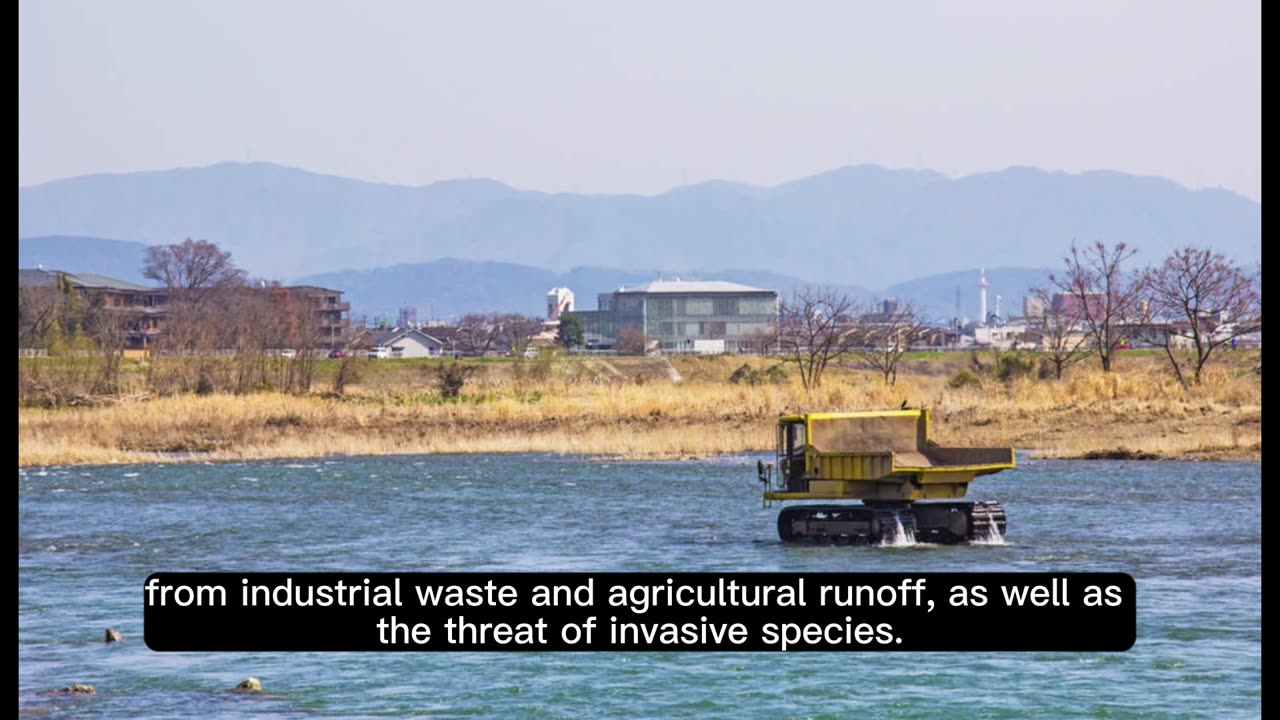Premium Only Content

Lake Biwa, situated in Shiga Prefecture, is Japan's largest freshwater lake
Lake Biwa, situated in Shiga Prefecture, is Japan's largest freshwater lake and one of the world's oldest, with an estimated age of over 4 million years. Covering an area of approximately 670 square kilometers, the lake has a maximum depth of 104 meters. It is named after the traditional Japanese string instrument 'Biwa' due to its shape.
The lake serves as a vital water source for the Kansai region, including major cities like Kyoto and Osaka. It is home to a rich biodiversity, featuring over 1,000 plant and 50 fish species, some of which are unique to the lake.
Lake Biwa is a popular destination for both tourists and locals, offering a variety of activities such as fishing, boating, and bird-watching. It is also renowned for its scenic beauty, especially during the cherry blossom season in spring and the changing colors of autumn leaves.
The lake holds historical significance, having been a part of ancient trade routes and the backdrop for many traditional Japanese stories and poems. Several shrines and temples are situated around the lake, adding to its cultural and spiritual importance.
However, like many natural wonders, Lake Biwa faces challenges. Pollution from industrial waste and agricultural runoff is a concern, as is the threat of invasive species. Various conservation efforts are in place, including water quality monitoring and habitat restoration, to preserve this ancient lake.
In summary, Lake Biwa is a multifaceted natural, cultural, and historical treasure that offers a wide range of experiences, from outdoor activities and scenic beauty to spiritual enlightenment and ecological education.
SEO-Based Keywords
Lake Biwa, Shiga Prefecture, Japan, largest freshwater lake, ancient lake, 4 million years old, Kansai region, Kyoto, Osaka, biodiversity, endemic species, fishing, boating, bird-watching, cherry blossoms, autumn leaves, historical significance, trade routes, traditional stories, poems, shrines, temples, cultural importance, spiritual importance, pollution, industrial waste, agricultural runoff, invasive species, conservation efforts, water quality monitoring, habitat restoration,
-
 LIVE
LIVE
Dr Disrespect
6 hours ago🔴LIVE - DR DISRESPECT - GEARS RELOADED GLOBAL LAUNCH - CRUSHING LOCUST
1,969 watching -
 LIVE
LIVE
Akademiks
4 hours agoDrake got finessed w/ Fake Chain? Drake vs hip hop media. Cardi B in court. Did Young thug SNITCH?
1,104 watching -
 9:00
9:00
Zach Humphries
1 day agoXRP and CARDAO working together now?
46 -

Sarah Westall
1 hour agoIt’s Big Big Money – Trafficking People is Intertwined in Business & Politics w/ Natly Denise
6.19K1 -
 LIVE
LIVE
LFA TV
11 hours agoLFA TV ALL DAY STREAM - TUESDAY 8/26/25
1,427 watching -
 1:49:34
1:49:34
The Quartering
4 hours agoToday's Breaking News With Melonie Mac & Hannah Claire Brimlow!
153K172 -
 23:16
23:16
Jasmin Laine
2 hours agoCarney HUMILIATED by German Reporter—CTV Host Laughs as Liberals Get DESTROYED on Air
11.9K11 -
 1:04:59
1:04:59
The HotSeat
2 hours agoLisa Cook Blocks Your Mortgage Relief While Committing Mortgage Fraud – YOU’RE FIRED!
15K10 -
 58:54
58:54
The Tom Renz Show
2 hours agoJudges Are Completely Immune From Lawsuits
9.54K -
 1:18:46
1:18:46
Awaken With JP
3 hours agoCracker Barrel Makes Brilliant Decision, Trump Bans Flag Burning and More - LIES Ep 105
56.8K34